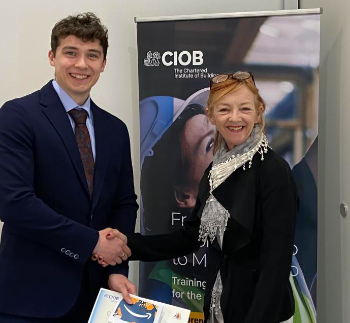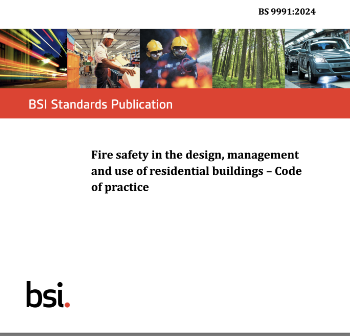Cost consultant
Typically cost consultants are quantity surveyors by profession, but accountants and other professionals can also be effective cost consultants.
The cost consultant provides estimates, and advice regarding the cost of construction works.
The cost consultant's role might include:
- Helping determine the client's requirements and undertaking feasibility studies.
- Benchmarking requirements against similar projects.
- Assessing and comparing options.
- Helping define the project budget.
- Checking developing designs against the project budget.
- Assessing value for money.
- Checking designs meet legal and quality standards.
- Undertaking risk management and value management exercises.
- Preparing cost plans, estimates and cash flow projections.
- Advising on procurement strategy.
- Advising on packaging.
- Preparing bills of quantities.
- Preparing tender pricing documents.
- Collating and issuing tender documentation.
- Assessing tenders.
- Estimating the cost of variations.
- Preparing valuation statements for interim certificates.
- Assisting with the valuation of claims.
- Preparing regular cost reports, including out-turn cost and cash flow.
- Completing the final account.
There are very many different names given to cost planning documents. Cost plans are generally prepared by cost consultants (often quantity surveyors). They evolve through the life of the project, developing in detail and accuracy as more information becomes available about the nature of the design, and then actual prices are provided by specialist contractors, contractors and suppliers. They range from very early initial cost appraisals through to tender pricing documents and the final account.
As a consequence there area a great number of names that can be used for key cost planning information. On Designing Buildings Wiki we have standardised these as follows:
- Initial cost appraisals (studies of options prepared during the feasibility study stage).
- Elemental cost plan (prepared during the project brief stage and carried through to detailed design).
- Approximate quantities cost plan (from the end of detailed design through to tender).
- Pre-tender estimate (prepared alongside tender documentation).
- Tender pricing document (strictly speaking this is not a priced document, but is part of the tender documentation issued to the contractor for pricing).
- Contract sum (agreed with the contractor during the tender period and adjusted during the construction period).
- Contract sum analysis (a break down of the contract sum prepared by the contractor on design and build projects).
- Final account (agreed during the defects liability period).
Other than initial cost appraisals, these all relate to the construction cost of the project (rather than wider project costs that the client might incur, which could include; fees, equipment costs, furniture, the cost of moving staff, contracts outside of the main works, and so on). It is important that the client makes clear what costs should be monitored by the cost consultant and what will remain within the control of the client organisation.
Initial cost appraisals are carried out without the benefit of a design for the project. They include client costs that may not feature in later cost plans and as a result will almost certainly need input from the client's finance director or financial advisers. Once the initial cost appraisal is completed, the client will decide the scope of costs that will in future be monitored by the cost consultant and those that will be monitored and controlled by the client organisation.
For detailed descriptions of the sequence of activities necessary to appoint a cost consultant, see the work plan stages:
- Traditional contract: appointment.
- Design and build: appointment.
- Public project: appointment.
- Construction management: appointment.
- Management contract: appointment.
[edit] Related articles on Designing Buildings
- Accounting.
- Approximate quantities cost plan.
- Bid writer.
- Budget.
- Building People.
- Business plan.
- Cash flow.
- Chartered surveyor.
- Commercial manager.
- Consulting engineer.
- Construction buyer.
- Contract sum analysis.
- Cost control.
- Cost savings.
- Cost and bonus surveyor.
- Cost plans.
- Elemental cost plan.
- Estimator.
- Final account.
- Front-loaded costs.
- Initial cost appraisal.
- Interim certificate.
- New Rules of Measurement.
- Pre-tender estimate
- Professional indemnity insurance.
- Whole life costing.
- Quantity surveyor.
- Sustainability quantity surveyor.
- Tender pricing document.
- Variations.
- Whole life solution
[edit] External references
Featured articles and news
Great British Energy install solar on school and NHS sites
200 schools and 200 NHS sites to get solar systems, as first project of the newly formed government initiative.
600 million for 60,000 more skilled construction workers
Announced by Treasury ahead of the Spring Statement.
The restoration of the novelist’s birthplace in Eastwood.
Life Critical Fire Safety External Wall System LCFS EWS
Breaking down what is meant by this now often used term.
PAC report on the Remediation of Dangerous Cladding
Recommendations on workforce, transparency, support, insurance, funding, fraud and mismanagement.
New towns, expanded settlements and housing delivery
Modular inquiry asks if new towns and expanded settlements are an effective means of delivering housing.
Building Engineering Business Survey Q1 2025
Survey shows growth remains flat as skill shortages and volatile pricing persist.
Construction contract awards remain buoyant
Infrastructure up but residential struggles.
Home builders call for suspension of Building Safety Levy
HBF with over 100 home builders write to the Chancellor.
CIOB Apprentice of the Year 2024/2025
CIOB names James Monk a quantity surveyor from Cambridge as the winner.
Warm Homes Plan and existing energy bill support policies
Breaking down what existing policies are and what they do.
Treasury responds to sector submission on Warm Homes
Trade associations call on Government to make good on manifesto pledge for the upgrading of 5 million homes.
A tour through Robotic Installation Systems for Elevators, Innovation Labs, MetaCore and PORT tech.
A dynamic brand built for impact stitched into BSRIA’s building fabric.
BS 9991:2024 and the recently published CLC advisory note
Fire safety in the design, management and use of residential buildings. Code of practice.






















